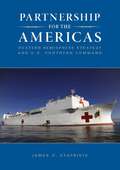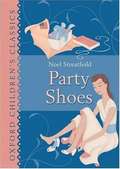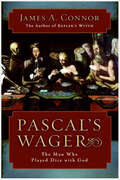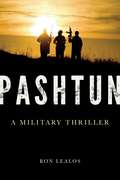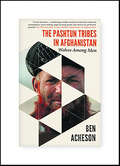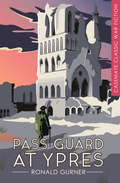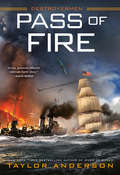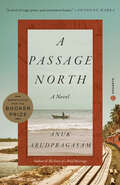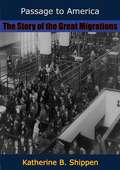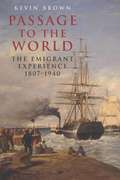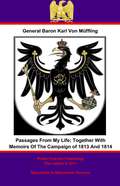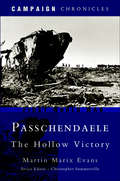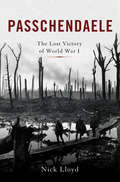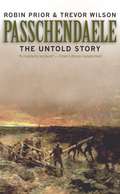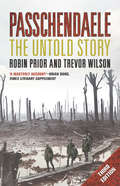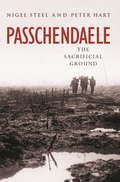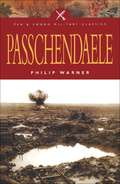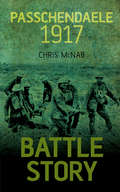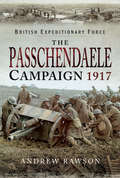- Table View
- List View
Partnership for the Americas: Western Hemisphere Strategy and U.S. Southern Command
by James G. StavridisSince its creation in 1963, United States Southern Command has been led by 30 senior officers representing all four of the armed forces. None has undertaken his leadership responsibilities with the cultural sensitivity and creativity demonstrated by Admiral Jim Stavridis during his tenure in command. Breaking with tradition, Admiral Stavridis discarded the customary military model as he organized the Southern Command Headquarters. In its place he created an organization designed not to subdue adversaries, but instead to build durable and enduring partnerships with friends. His observation that it is the business of Southern Command to launch "ideas not missiles" into the command's area of responsibility gained strategic resonance throughout the Caribbean and Central and South America, and at the highest levels in Washington, D.C..-Print Edition.
Party in the Street
by Michael T. Heaney Fabio RojasParty in the Street explores the interaction between political parties and social movements in the United States. Examining the collapse of the post-9/11 antiwar movement against the wars in Iraq and Afghanistan, this book focuses on activism and protest in the United States. It argues that the electoral success of the Democratic Party and President Barack Obama, as well as antipathy toward President George W. Bush, played a greater role in this collapse than did changes in foreign policy. It shows that how people identify with social movements and political parties matters a great deal, and it considers the Tea Party and Occupy Wall Street as comparison cases.
Party Shoes
by Noel StreatfeildSet during and after the second World War, this classic novel tells the story of Selina, who has been sent to live with her aunt, uncle, and cousins in the country. When Selina receives a parcel from her godmother in America it causes much excitement among her and her cousins, and, to Selina's delight, the parcel contains a beautiful party dress and a pair of party shoes. But delight turns to dismay when she realizes that she may never have an occasion to wear such a wonderful outfit - until, that is, she and her cousins come up with an idea of organizing a pageant...
Pascal's Wager: The Man Who Played Dice with God
by James A. ConnorIn a major biography of Blaise Pascal, James Connor explores both the intellectual giant whose theory of probability paved the way for modernity and the devout religious mystic who dared apply probability to faith.
Pashtun: A Military Thriller
by Ron LealosAn adrenaline-filled war story that depicts the challenges of military special operations in a dangerous, boulder-filled landscapeThe Company has a special secret operation planned for one of their top agents: the leaders of the Taliban and al-Qaeda terrorist groups are hiding out in Pashtun country, and they must be eliminated. The job falls to a man they have named Frank Morgan-an agent who stood out as a recruit at Quantico and whose skills resemble those of the legendary Vietnam assassin. The other soldiers claim Frank’s abilities as a sniper and a tracker border on the supernatural and are more than willing to complete this mission with him.Frank begins his adventure in Afghanistan with another Company-appointed soldier: an indestructible lyrical Irishman with a cutting sense of humor and a bottle of Jameson never far from hand. After the men rescue a burqa-clad young woman, they soon discover that the Company has not been honest with them and decide to take a second mate under their wing-a giant who quotes poetry and rap songs while he both enacts torture and lives through his own agonizing trials.They know now that oil, drugs, and greed have led to this quest; assassinating the terrorists is not their main objective. However, this still must be done. After becoming dangerously acquainted with the heroin business in the frontier provinces, Frank and his comrades continue their mission. But the lines have now blurred, and the assignment is more complicated than they expected.Skyhorse Publishing, as well as our Arcade, Yucca, and Good Books imprints, are proud to publish a broad range of books for readers interested in fiction-novels, novellas, political and medical thrillers, comedy, satire, historical fiction, romance, erotic and love stories, mystery, classic literature, folklore and mythology, literary classics including Shakespeare, Dumas, Wilde, Cather, and much more. While not every title we publish becomes a New York Times bestseller or a national bestseller, we are committed to books on subjects that are sometimes overlooked and to authors whose work might not otherwise find a home.
The Pashtun Tribes in Afghanistan: Wolves Among Men
by Ben Acheson‘The Pashtun Tribes of Afghanistan is a tour de force – combining erudite analysis, historical research, atmospheric story-telling, page-turning prose and above all, profound passion.’ - Sir Nicholas Kay, NATO Senior Civilian Representative in Afghanistan (2019-2020) & British Ambassador to Afghanistan (2017-2019) The abrupt withdrawal of US and NATO forces in 2021 ushered in a new era for Afghanistan. The subsequent Taliban takeover facilitated a reversion to some of the worst hallmarks of Afghanistan’s past, including bans on women’s education and other rights-related roll-backs. Navigating this new reality necessitates that more constructive relationships are built between Westerners and Afghans, particularly with the majority ethnicity – the Pashtun tribes. The Pashtun Tribes in Afghanistan: Wolves Among Men is the toolkit for doing so. It provides the knowledge needed to navigate a complex tribal environment. Framed by first-hand experience and balancing in-depth analysis with engaging anecdotes, it sheds light on the Pashtun way of life still enshrined in the ancient “Pashtunwali” honor code. It explains the tribal structure, tribal territories, historic battles, prominent figures and even Pashtun proverbs and poets. It also highlights how recent wars are destroying the tribal arena. Focusing on people rather than politics, this book unveils the layers, paradoxes and subtleties of the world’s largest tribal society. On turning the final page, readers will understand the Pashtun brand of tribalism and how it influences Afghanistan today. They will be aware that tribal life has been permanently challenged but that the Pashtun identity remains intact – in psychology if not always in practice. They will recognize why Pashtuns are not a single entity and should not be treated as “one”. The need to understand the tribes as they understand themselves will also be clear, particularly their concept of honor. This book illuminates why, from Alexander the Great to Winston Churchill, and even with the Taliban today, Pashtuns are still stereotyped as primitive, violence-prone barbarians. But were men like Rudyard Kipling right to characterize tribesmen as being “as unaccountable as the grey Wolf, who is his blood brother?” This book has the answer.
Pass Guard at Ypres: A Novel (Casemate Classic War Fiction #5)
by Ronald GurnerFrom a World War I veteran: A novel of the years-long, brutal battle at Ypres, Belgium, and what it did to the city and the men who fought there. In 1915, a platoon of inexperienced British soldiers arrives in Flanders, excited and anxious for what is to come. But they soon find themselves at Ypres, where the battle-weary Allied troops have dug in and slaughter surrounds them. Soldiers, from privates to senior officers of the wider battalion, frozen by terror and overwhelmed by the relentless stress as the battle drags on, want nothing more than to hide. Young, dedicated officer Freddy Mann is in the thick of it with his men--burying the dead, experiencing the terror of bombardment, and being picked off by snipers. On a journey from idealistic officer barely out of school to battle-hardened cynic barely hanging on as those around him are cut down, Mann suffers a crisis of faith as he loses his belief in the war and everything he once stood for. Written by a WWI veteran, Pass Guard at Ypres brings to life the harrowing realities of the Great War, portraying years of lengthy fighting in--and the pivotal strategic role of--the ancient and once-peaceful town on the bank of the Ieperlee River.
Pass of Fire (Destroyermen #14)
by Taylor AndersonAfter being transported to a strange alternate Earth, Matt Reddy and the crew of the USS Walker have learned desperate times call for desperate measures, in the return to the New York Times bestselling Destroyermen series.Time is running out for the Grand Human and Lemurian Alliance. The longer they take to prepare for their confrontations with the reptilian Grik, the Holy Dominion, and the League of Tripoli, the stronger their enemies become. Ready or not, they have to move--or the price in blood will break them. Matt Reddy and his battered old destroyer USS Walker lead the greatest army the humans and their Lemurian allies have ever assembled up the Zambezi toward the ancient Grik capital city. Standing against them is the largest, most dangerous force of Grik yet gathered. On the far side of the world, General Shinya and his Army of the Sisters are finally prepared for their long-expected assault on the mysterious El Paso del Fuego. Not only is the dreaded Dominion ready and waiting for them; they've formed closer, more sinister ties with the fascist League of Tripoli. Everything is on the line in both complex, grueling campaigns, and the Grand Alliance is stretched to its breaking point. Victory is the only option, whatever the cost, because there can be no second chances.
The Passage (A Dan Lenson Novel #4)
by David PoyerIn The Passage, Poyer offers the fourth book in his ambitious cycle of the U.S Navy-a powerful human drama of hope, betrayal, redemption, and thrilling action at sea and ashore. The Passage begins with a mystery: a U.S. attack sub is lost on a secret mission off the Siberian coast. As the Navy investigates, fearing that somehow its codes are being read, Lieutenant Dan Lenson begins a crucial assignment. Ordered to straighten out the radically innovative but failure-prone combat system of USS Barrett, DDG-998, Lenson is at a personal crossroads. His wife has left him, his previous tour of duty ended in tragedy, and he is beginning to doubt his own sense of right and wrong. Barrett is on her way to a demanding workup in Guantanamo Bay, Cuba. If she fails, his career will be over. As Dan starts his voyage, newly widowed Graciela Gutierrez begins her own. A pregnant sugar-cane worker, she dreams of raising her fourth child in freedom. With eight others in a remote village in Camaguey Province, she plans a daring escape from Cuba in a homemade boat. If they succeed, a new life awaits in America; if they fail, they will die in the shark-filled waters of the Windward Passage. Struggling to crack an electronic virus, Lenson and computer expert "Doctor DOS" Shrobo gradually uncover more problems aboard Barrett. Captain Thomas Leighty may be losing control of his ship. There are whispers about his sexual orientation and the executive officer's loyalty. As a massive refugee boatlift begins, another danger is unmasked: somewhere aboard is a ruthless and cunning spy, with a plan that will lure the Navy, Barrett, and Lenson into a frightening international confrontation. Suspenseful, profound, and richly peopled, The Passage is an unforgettable novel that asks disturbing questions about honor, loyalty, justice, and about the truth.
A Passage North: A Novel
by Anuk ArudpragasamA young man journeys into Sri Lanka&’s war-torn north in this searing novel of longing, loss, and the legacy of war from the author of The Story of a Brief Marriage. &“A novel of tragic power and uncommon beauty. In his depiction of the processes through which history sculpts human fate, Anuk Arudpragasam achieves something akin to grace.&”—Anthony Marra, author of A Constellation of Vital Phenomena A Passage North begins with a message from out of the blue: a telephone call informing Krishan that his grandmother&’s caretaker, Rani, has died under unexpected circumstances—found at the bottom of a well in her village in the north, her neck broken by the fall. The news arrives on the heels of an email from Anjum, an impassioned yet aloof activist Krishnan fell in love with years before while living in Delhi, stirring old memories and desires from a world he left behind. As Krishan makes the long journey by train from Colombo into the war-torn Northern Province for Rani&’s funeral, so begins an astonishing passage into the innermost reaches of a country. At once a powerful meditation on absence and longing, as well as an unsparing account of the legacy of Sri Lanka&’s thirty-year civil war, this procession to a pyre &“at the end of the earth&” lays bare the imprints of an island&’s past, the unattainable distances between who we are and what we seek. Written with precision and grace, Anuk Arudpragasam&’s masterful novel is an attempt to come to terms with life in the wake of devastation, and a poignant memorial for those lost and those still alive.
Passage to America: The Story of the Great Migrations
by Katherine B. ShippenOriginally published in 1950, this is a comprehensive account of the peaks and troughs of migrations to America, beginning with its original formation of the nation through to the influx of Displaced Persons.Relating the American migrations to great movements in world history on the one hand, and to the national ideal of freedom on the other, the author discusses national and cultural migrations specifically—the French, Dutch, Norwegians, Swedes, Germans, Irish, Chinese, Italians, Russians, Russian Jews, and the refugees and survivors of World War II.“Stimulating reading for all young Americans, at home or in the classroom.”—Kirkus Review“Passage to America was not written as propaganda, yet its very nature makes it a weapon fitted to any hand that is raised in the fight for freedom….It is good in these days to find a book that in strong but not bitter style denounces tyranny and, without any frantic flag-waving, upholds the democratic way of Life.”—Sunday Review of Literature“A living story of the meaning of democracy. The narrative moves easily and smoothly, and the book should arouse the interest of anyone over twelve or thirteen who looks at it.”—The Horn Book
Passage to Freedom
by Ken Mochizuki Hiroki SugiharaHere is the authorized true story of Chiune Sugihara, the "Japanese Schindler", who saved thousands of Jews during World War II. "Passage to Freedom" tells Sugihara's heroic story, highlighting his courageous humanity and the importance of a child's opinion in his father's decision. "American Bookseller" Pick of the Lists. Full-color illus.
Passage to Mutiny (Richard Bolitho Ser. #7)
by Alexander KentIn 1789 Captain Richard Bolitho is aboard the frigate Tempest in the South Pacific, where he is to protect English shipping lanes from seagoing enemies. At the same time he must contain a growing mutiny aboard his own ship. Sequel to Command a King's Ship, 1976.
Passage to the World: The Emigrant Experience, 1807–1940
by Kevin BrownFrom the early nineteenth century onwards, literally millions of people left their homes to cross the seas. Some, like the convicts transported to Australia, had no choice; others like the indentured Indian and Chinese labourers had almost no alternative; but the vast majority were driven to escape war, famine or grinding poverty in Europe by seeking a new life abroad. Whatever their circumstances and wherever their destination, the one experience they all shared in common was the sea voyage.This book is centred on the rite of passage that marked the transition from one life to the other, tracing the story of the emigrant, through a fresh look at original sources and first-hand accounts, from the decision to emigrate, the journey to the port and the voyage itself, to arrival in the new world. It describes the emigrant trade, the differing conditions on board sailing ships and steamers, convict and coolie ships, and the perils of overcrowding, epidemics, fire, shipwreck and even cannibalism. It also investigates the varied receptions emigrants were likely to face not necessarily the welcome promised the homeless, tempest-tost by the Statue of Liberty.This unprecedented population shift left few European families untouched by emigration, while the present-day populations of the Americas and Australasia are dominated by the descendants of those who made the journey. This gives the emigrants story a universal interest.
Passages From My Life; Together With Memoirs Of The Campaign of 1813 And 1814
by Pickle Partners Publishing Colonel Philip Yorke General Freiherr Baron Friedrich Karl Ferdinand Von MüfflingThis ebook is purpose built and is proof-read and re-type set from the original to provide an outstanding experience of reflowing text for an ebook reader. Baron von Müffling was an eye-witness to some of the most decisive events of the Napoleonic Wars, born into a noble family he went into the Prussian service, and saw action in the early campaigns of the Revolutionary wars in Holland and Belgium, during which he said he learned very little. He was party to the birth of the famed Prussian General staff and comments of the different personalities such as Scharnhorst, Gneisenau and to a lesser extent Massenbach. On a less happy note he was also a member of the Prussian army that was destroyed by Napoleon in 1806, and notes with some regret of the bumbling planning, ancient commanders and ineffective tactics used. After spending some time kicking his heels away from Prussia, where he might be a liability due to his anti-French views, the collapse of the Grande Armée in 1812 offers a chance for further service and liberation of his country. Attached to the army of Silesia and Blücher for the campaigns of 1813 and 1814, during which he and his countrymen fight their way across Europe into the heart of France. He comments on the battles of Lützen, Bautzen, and the battle of Nations at Leipzig, the strained relationships within the allied headquarters and the deeds of hard fighting and long marches that the Russian and Prussian soldiers make under Blücher. His comments on the 1814 campaign in France are particularly interesting as he was at the heart of the action, and at the side of the conductors of the campaign from the Allied side. He is quick to take issue with erroneous statements made at the time, and by later commentators as to the decisions made and the actions taken. Müffling was allowed little respite after the peace of 1814, plunging back into the fray in 1815 as the Prussian liaison officer at the Duke of Wellington's headquarters. Vivid details and important facts are recounted with extreme modesty, and unlike staff-officers of later years his place on the battlefield at the Duke's side was one of grave danger as the Anglo-Dutch army struggled to hold on to the ridge at Waterloo. His own action was indeed decisive, in two incidents, the first in directing the Prussian reinforcements to the right of the hard-pressed allied line, and secondly in bringing up two British cavalry brigades to take part in the final assault on the French lines. He was appointed the Governor of Paris, a particularly tricky job given the recent struggles and the large numbers of armed men roaming the city, which he dispatched with aplomb. Müffling would go on to many important postings in the Prussian army, and even as an international mediator. An excellent read, full of details of how the Napoleonic Wars was fought and the personalities that bought down the Napoleonic colossus. Author - General Baron Friedrich Karl Ferdinand von Müffling - (1775-1851) Editor - Colonel Philip Yorke (1799-1874) Text taken, whole and complete, from the edition published in 1853, London, by Richard Bentley Original - 520 pages. Linked TOC
Passchendaele: The Hollow Victory (Campaign Chronicles)
by Martin Matrix EvansPasschendaele is one of the most evocative names associated with the Great War. For over 80 years, the battle has epitomized pointless slaughter on an unimaginable scale. The bare statistics are shocking in themselves - the British, French and German armies suffered over half a million casualties between July and November 1917. Ever since, the image of hapless soldiers struggling through the mud and the shellfire has come to represent the futility of trench warfare and the incompetence of their commanders. Yet, as Martin Marix Evans demonstrates in this gripping and perceptive reassessment, some common assumptions about the course of the battle - and the ways in which it was fought - are mistaken and should be looked at again.
Passchendaele: The Lost Victory of World War I
by Nick LloydThe definitive account of Passchendaele, one of the most influential and tragic battles of the First World WarPasschendaele. The name of a small, seemingly insignificant Flemish village echoes across the twentieth century as the ultimate expression of meaningless, industrialized slaughter. In the summer of 1917, upwards of 500,000 men were killed or wounded, maimed, gassed, drowned, or buried in this small corner of Belgium.On the centennial of the battle, military historian Nick Lloyd brings to vivid life this epic encounter along the Western Front. Drawing on both British and German sources, he is the first historian to reveal the astonishing fact that, for the British, Passchendaele was an eminently winnable battle. Yet the advance of British troops was undermined by their own high command, which, blinded by hubris, clung to failed tactics. The result was a familiar one: stalemate. Lloyd forces us to consider that trench warfare was not necessarily a futile endeavor, and that had the British won at Passchendaele, they might have ended the war early, saving hundreds of thousands, if not millions, of lives. A captivating narrative of heroism and folly, Passchendaele is an essential addition to the literature on the Great War.
Passchendaele
by Robin Prior Trevor WilsonNo conflict of the Great War excites stronger emotions than the war in Flanders in the autumn of 1917, and no name better encapsulates the horror and apparent futility of the Western Front than Passchendaele. By its end there had been 275,000 Allied and 200,000 German casualties. Yet the territorial gains made by the Allies in four desperate months were won back by Germany in only three days the following March. The devastation at Passchendaele, the authors argue, was neither inevitable nor inescapable; perhaps it was not necessary at all. Using a substantial archive of official and private records, much of which has never been previously consulted, Trevor Wilson and Robin Prior provide the fullest account of the campaign ever published.The book examines the political dimension at a level which has hitherto been absent from accounts of "Third Ypres." It establishes what did occur, the options for alternative action, and the fundamental responsibility for the carnage. Prior and Wilson consider the shifting ambitions and stratagems of the high command, examine the logistics of war, and assess what the available manpower, weaponry, technology, and intelligence could realistically have hoped to achieve. And, most powerfully of all, they explore the experience of the soldiers in the light--whether they knew it or not--of what would never be accomplished.
Passchendaele: The Untold Story; Third Edition
by Robin Prior Trevor WilsonNo conflict of the Great War excites stronger emotions than the war in Flanders in the autumn of 1917, and no name better encapsulates the horror and apparent futility of the Western Front than Passchendaele. By its end there had been 275,000 Allied and 200,000 German casualties. Yet the territorial gains made by the Allies in four desperate months were won back by Germany in only three days the following March. The devastation at Passchendaele, the authors argue, was neither inevitable nor inescapable; perhaps it was not necessary at all. Using a substantial archive of official and private records, much of which has never been previously consulted, Trevor Wilson and Robin Prior provide the fullest account of the campaign ever published. The book examines the political dimension at a level which has hitherto been absent from accounts of "Third Ypres." It establishes what did occur, the options for alternative action, and the fundamental responsibility for the carnage. Prior and Wilson consider the shifting ambitions and stratagems of the high command, examine the logistics of war, and assess what the available manpower, weaponry, technology, and intelligence could realistically have hoped to achieve. And, most powerfully of all, they explore the experience of the soldiers in the light--whether they knew it or not--of what would never be accomplished.
Passchendaele
by Nigel Steel Peter HartIn the autumn of 1917, after years of stalemate at Ypres, the British and French armies launched a massive offensive to take Passchendaele Ridge. Following an intensive bombardment, the Allies began their attack, but the low ground between the lines had been churned into a quagmire, and the attack was literally bogged down.All surprise had been lost, and the German defence in depth was well organised. For the first time the Germans used mustard gas, while German planes flew low to strafe the British infantry with machine guns. After two and a half months the British finally took the ridge they had been aiming for, but at the cost of over 300,000 Allied lives. German losses in the offensive were estimated at 260,000.Based on the archival holdings at the Imperial War Museum, this book gathers together a wealth of material about this horrific offensive. A history to appeal to the scholar and the general reader alike.
Passchendaele
by Nigel Steel Peter HartIn the autumn of 1917, after years of stalemate at Ypres, the British and French armies launched a massive offensive to take Passchendaele Ridge. Following an intensive bombardment, the Allies began their attack, but the low ground between the lines had been churned into a quagmire, and the attack was literally bogged down.All surprise had been lost, and the German defence in depth was well organised. For the first time the Germans used mustard gas, while German planes flew low to strafe the British infantry with machine guns. After two and a half months the British finally took the ridge they had been aiming for, but at the cost of over 300,000 Allied lives. German losses in the offensive were estimated at 260,000.Based on the archival holdings at the Imperial War Museum, this book gathers together a wealth of material about this horrific offensive. A history to appeal to the scholar and the general reader alike.
Passchendaele: The Story Behind The Tragic Victory Of 1917 (Pen & Sword Military Classics)
by Philip WarnerNearly ninety years ago, on 31st July 1917, the small Belgian village of Passchendaele became the focus for one of the most gruelling, bloody and bizarre battles of World War 1. By 6th November, when Passchendaele village and the ridge were captured, over half a million British, French, Canadians, Australians, New Zealanders and Germans had become casualties. Philip Warner, the noted historian of twentieth-century warfare and the author of over fifty books on military history, many published by Pen & Sword, has skilfully brought together all the elements of this horrific campaign - the historical background, personal accounts, strategies and tactics, the personalities and the political manoeuvres. He investigates the issues which had a crucial effect on the course of the battle, including the mutinous state of the French army, the bombardment which destroyed the drainage system, Field Marshal Sir Douglas Haig's determination to continue operations despite the appalling weather and ground conditions, and the stormy relationship between Haig and Lloyd George. However, it is the determined fighting ability and the bravery of the allied soldiers, rather than the tactical plans of the commanders, that dominate this detailed and totally absorbing account of the harrowing four-month campaign called the Battle of Passchendaele.Passchendaele is a masterly and timely analysis of one of the most important battles in history.
Passchendaele
by Trevor Wilson Robin PriorNo conflict of the Great War excites stronger emotions than the war in Flanders in the autumn of 1917, and no name better encapsulates the horror and apparent futility of the Western Front than Passchendaele. By its end there had been 275,000 Allied and 200,000 German casualties. Yet the territorial gains made by the Allies in four desperate months were won back by Germany in only three days the following March. The devastation at Passchendaele, the authors argue, was neither inevitable nor inescapable; perhaps it was not necessary at all. Using a substantial archive of official and private records, much of which has never been previously consulted, Trevor Wilson and Robin Prior provide the fullest account of the campaign ever published.The book examines the political dimension at a level which has hitherto been absent from accounts of "Third Ypres." It establishes what did occur, the options for alternative action, and the fundamental responsibility for the carnage. Prior and Wilson consider the shifting ambitions and stratagems of the high command, examine the logistics of war, and assess what the available manpower, weaponry, technology, and intelligence could realistically have hoped to achieve. And, most powerfully of all, they explore the experience of the soldiers in the light-whether they knew it or not-of what would never be accomplished.
Passchendaele 1917
by Chris McnabThe Battle of Passchendaele has come to epitomize the mud and blood of the First World War. Passchendaele is perhaps one of the most iconic campaigns of the First World War, coming to symbolize the mud and blood of the battlefield like no other. Fought for over three months under some of the worst conditions of the war, fighting became bogged down in a quagmire that made it almost impossible for any gains to be made. In this Battle Story, Chris McNab seeks to lift the battle out of its controversy and explain what really happened and why. Complete with detailed maps and photographs, as well as fascinating facts and profiles of the leaders, this is the best introduction to this legendary battle.
The Passchendaele Campaign, 1917 (British Expeditionary Force)
by Andrew RawsonThis is an account of the British Expeditionary Forces battles in the summer and autumn of 1917. It begins with the Allied plan to free up the Flanders coast, to limit German naval and submarine attacks on British shipping.The opening offensive began with the detonation of nineteen mines on 7 June and ended with the capture of the Messines Ridge. The main offensive started with success on 31 July but was soon bogged down due to the August rains. Three huge attacks between 20 September and 4 October had the Germans reeling, but again the weather intervened and the campaign concluded with futile attacks across the muddy slopes of the Passchendaele Ridge.Each large battle and minor action is given equal treatment, giving a detailed insight into the most talked about side of the campaign, the British side. There are details on the planning of each offensive and the changing tactics used by both sides. There is discussion about how the infantry, the artillery, the cavalry, the engineers and Royal Flying Corps worked together. Over sixty new maps chart the day-by-day progress of each battle and action.Together the narrative and maps provide an insight into the British Armys experience during this important campaign. The men who made a difference are mentioned; those who led the advances, those who stopped the counterattacks and those who were awarded the Victoria Cross. Discover the Passchendaele campaign and learn how the British Armys brave soldiers fought and died fighting for their objectives.
